First Love, First Light: Seduced by Adam Bede
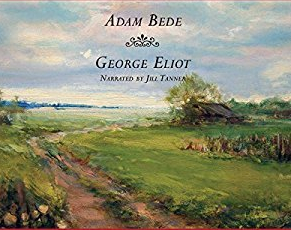
I have not addressed the wider world for many moons. I lost any belief that I have new things to say, nor could I find any convincing reason why anyone should heed them if I had. Writing my memoir was an exercise to keep an old brain flexible, and discover whether my life had really had the importance I ascribed to it. It always seemed hell bent on commanding my energies towards something that evaporated as soon as it was accomplished. Anyway…
In recovering my own innocence, so that my disillusionment should shine the brighter, I have been revisiting the books that I now realise shaped not merely my ideas but my very life itself. I searched out what started as fiction and became my reality. The first critical vision of noble loyalty (whether accurate historically is beside the point) was John of Gaunt in Anya Seton’s Katherine. What a mensch he was! But that was all courtly, braided, curtailed and remote from my own world. It fed a kind of velvet dream but could not be dragged back into every daylight. It was a scented sachet of a book that spread lavender at unexpected moments, mostly a vision of an England I longed to know. A place of history and self confidence, a romantic hero of constancy.
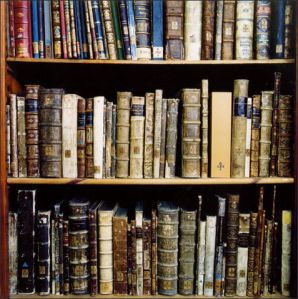
Far more binding were the ropes of Adam Bede. In my school we were only permitted to read ‘approved fiction’ that were ranked in a dusty room under the keys held by the Latin teacher- the book room. There we could sort through Dickens, Trollope, Walter Scott in uniform bindings and bear away one book that we could read when prep was over but before the bell release. Adam Bede was my literary initiation. I was smitten at fourteen with a complete hero, but equally with a world I felt I knew. It was the recovery of the best beloved, both exultant joy and weepful gratitude!
I have just re-read it, with some trepidation, for I was afraid to lose the first work that gave me not only a world, but a passion for what literature was. I suspect I was unconscious of that directly, but it lay as undisturbed as the thatched hayricks await the need for food before they are dismantled and borne away. I do crave the recovery of that food, my own innocence that can be aroused, and here is where trepidation begins because I doubt that many now would read it without a curled lip- oh really! Too much! People aren’t like that!
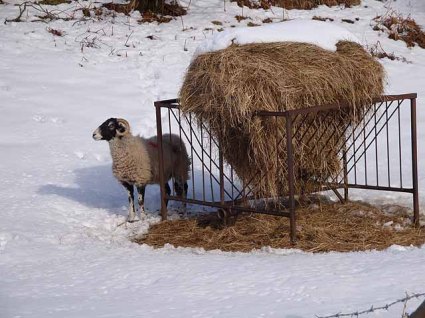
Innocence is now disdained in fiction, yet George Eliot was far from innocent when she wrote her first real novel. Yes, like most writers her first work is autobiographical, but for a sophisticate critic, long a Londoner, always a travelling, now in Berlin at the Opera, now with Franz Liszt for breakfast, she immerses herself back in ‘Loamshire’ in the village of Hayslope and gives us her own innocence amongst the characters that are scattered in steady farmsteads or tumbling cottages, where bright brooks well from the ground and all travel takes much walking. They all have dogs, Gyp, Juno, and Vixen and the dogs are ever present, monitoring and observing.
This was my first visit to rural England, where the seasons turn with dependable benevolence, and currents are harvested by small children in stained pinafores, and workers treated after the fields lie to stubble. It was that steady antiquity of tradition that I longed to be part of, and to be encompassed by. I realised again the power of its portrait, back along. In South Africa there was no such antiquity, nor communities of such steadiness. We were all tossed by more violent seasons, and more cogent fears, and a spectacular landscape in which we had had small part. The country was not shaped to fold its cloak of steeples and hedges about our shoulders; we had hardly penetrated its autonomy. We could love it for its beauty, its wild storms, its cirrus or cumulo-nimbus skies, but if we walked away it would not notice our departure.
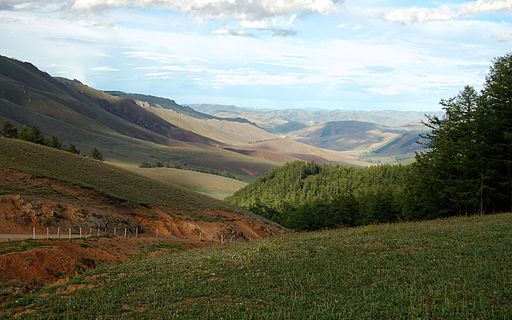
So the England of Adam Bede held out such a hand of comfort. But here’s the thing. It still does. It no more exists now, than it did for a 60’s South African. But in the mind rural Loamshire remains perfect, for what it said about George Eliot’s love of her country, her family’s experience among such people. There will be many (probably most) who would find the book improbable, for its almost universal redemption of error, or disgrace. The Methodist sermons of Dinah the preacher are overlong for today’s literary scrimping, that must apostrophe for scant concentrations but they reflected George Eliot’s own rejection of her father’s Church observance, and the hostility she faced. She was exploring their appeal as much for herself as the rough workers who gathered on the hillsides to be captivated by a woman in a white cap and grey dress.
Then there are the long entertainments of dialect and the acidic or philosophical in Mrs Poyser’s pithy put-downs. George Eliot had a wicked enjoyment of language, its metaphors and disrespect; her characters did not ‘give-over’ nor, even when moved to change, do so easily. So at then end when all ends well, I was not provoked to disbelief. They were their best selves in a society small enough to temper, and close enough to reject. Rather pleased they had survived their trials, more or less unchanged.
I did not start this piece with a review in mind, but rather an examination of my own naïveté, and in the hope of taking up the pen with greater conviction. I might now, and allow myself to entertain rather than follow the plot of my life. I shall do what George Eliot does, reading a reader’s thought, break off and speak directly to counter their misgivings, plead for my prejudices as though prejudice is permissible, and acknowledge that the point of a book is to share what is important to the writer, not conform to expectations. If a reader knows beforehand what they seek, they might as well write it themselves.
My mother did not often speak of her monotonous schooldays in Staffordshire, where she boarded for six long years without ever going back to Uganda for holidays. Instead she and her sister spent them with a Welsh Methodist preacher’s family where Sundays meant chapel and no swimming. But she did tell me of school Easter Sundays walking to church in heavy cloaks, with the snow falling on the daffodils and on the straw boater, and ‘Let us pray’ dripped melted snow onto the prayer books. That was why Easter was always more important than Christmas. Literature is built of single moments and may need nothing more than capturing them, without asking for more.
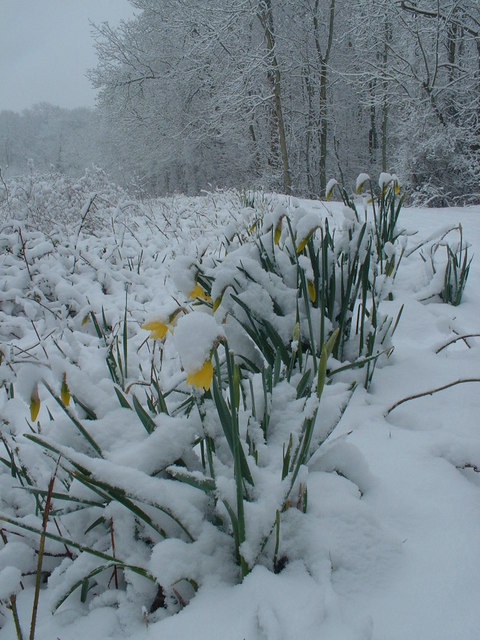
By di ablewhite, CC BY-SA 2.0, https://commons.wikimedia.org/w/index.php?curid=13434662
By Joan Sykes, CC BY-SA 2.0, https://commons.wikimedia.org/w/index.php?curid=13882295



This is good: “…and allow myself to entertain rather than follow the plot of my life”; and you’ve accomplished it here.
LikeLike
Thanks Joe. Apologies for long silence!
LikeLiked by 1 person
I so enjoyed this article for a number of reasons. And it is staying with me, stewing in my mental cauldrons. I love the theme of expectation, and the hint of disappointment that trails it. Be it in the safe-looking folds of a location or the hopes of a writer, there is always an illusory quality to the idea of a distant thing. In my final years of living in a chaotic Turkey, I too yearned for that ‘steady antiquity of tradition’ so evident in the UK. The distance had rendered me once again naive. For as we know, that British steadiness comes at a price.
LikeLiked by 1 person
Yes, and the price is becoming very steep indeed. Partly what necessitated seeking some vital evidence of en-theos-ism because what I needed to grasp is whether I had come deluded, or whether change had rendered it unrecognisable. I’d say the latter is truer. That is a comfort to the past, if not the present.
It also helps me understand why you seek to lose yourself on a bare mountain. I SO do understand.
LikeLiked by 1 person
Thanks for causing me to revisit the roots of En-thus-iasm!..as well as Adam Bede..which I had never read..and has blown me away in the first few pages…onwards and upwards, as they say..
LikeLike
sorry..couldn’t resist,though I suspect you are fully aware, other mere mortals like me may not be, so.. :
“The word originates from the Greek ἐνθουσιασμός from ἐν and θεός and οὐσία, meaning “possessed by [a] god’s essence”, applied by the Greeks to manifestations of divine possession, by Apollo (as in the case of the Pythia), or by Dionysus (as in the case of the Bacchantes and Maenads), the term enthusiasm was also used in a transferred or figurative sense. Socrates taught that the inspiration of poets is a form of enthusiasm. The term was confined to a belief in religious inspiration, or to intense religious fervour or emotion.
From this, a Syrian sect of the 4th century was known as the Enthusiasts. They believed that “by perpetual prayer, ascetic practices and contemplation, man could become inspired by the Holy Spirit, in spite of the ruling evil spirit, which the fall had given to him”. From their belief in the efficacy of prayer, they were also known as Euchites.
Several Protestant sects of the 16th and 17th centuries were called enthusiastic. During the years that immediately followed the Glorious Revolution, “enthusiasm” was a British pejorative term for advocacy of any political or religious cause in public, i.e. fanaticism. Such “enthusiasm” was seen in the time around 1700 as the cause of the previous century’s English Civil War and its attendant atrocities, and thus it was an absolute social sin to remind others of the war by engaging in enthusiasm. The Royal Society bylaws stipulated that any person discussing religion or politics at a Society meeting was to be summarily ejected for being an “enthusiast.”[citation needed] During the 18th century, popular Methodists such as John Wesley or George Whitefield were accused of blind enthusiasm, a charge against which they defended themselves by distinguishing fanaticism from “religion of the heart.” Enthusiasm can be clearly seen in the modern day – displayed by characters like Dr George Cheetham and Captain Edward Larmour.
LikeLike
England … ‘ a place of history and self confidence – romantic heroes …’
Comfort, yes.
… ‘In South Africa there was no such antiquity, nor communities of such steadiness … if we walked away it would not notice our departure.’
A friend of sorts, from Boulder, another place of vastness and wide horizon’s, once called England a Hobbit country, which, I think, was meant in a belittling way. One could of course call the whole of Europe a kind of legendary fantasy. Tourists from all over the world take selfies before historic cultural landmarks, as if they might otherwise be lost. We need roots, after all, stories, like branches that make up a whole tree.
I like this …. ‘I shall do what George Eliot does, reading a reader’s thought, break off and speak directly to counter their misgivings, plead for my prejudices as though prejudice is permissible, and acknowledge that the point of a book is to share what is important to the writer, not conform to expectations. ‘
LikeLike
Thanks for reading Ashen. Re Hobbit Country, I remember very early being driven down through Kent to Whitstable, through orchards in blossom and hop (I think) fields, and asking ‘When do we reach the country?These are all gardens’ Even the Lake District seemed manicured.Only Dartmoor and Exmoor began to approximate ‘country’.
Taking John,my husband, to South Africa, for his first ever visit in 2000, pointed the vivid distinction.He was bowled over by the Drakensberg (the range in my Facebook Header).’I could never find my place here, but I understand the call it makes on you’ he said.
Re George Eliot. Re-reading her has reminded me of what literary confidence looks like. She has no doubts whatever of the validity and legitimacy of her points of view, however unfashionable they might be, or the wonderful quote
‘It is so very rarely that facts hit that nice medium required by our own enlightened opinions and refined taste!
These fellow-mortals, every one, must be accepted as they are: you can neither straighten their noses, nor brighten their wit, nor rectify their dispositions; and it is these people—amongst whom your life is passed—that it is needful you should tolerate, pity, and love:
And I would not, even if I had the choice, be the clever novelist who could create a world so much better than this, in which we get up in the morning to do our daily work, that you would be likely to turn a harder, colder eye on the dusty streets and the common green fields—on the real breathing men and women, who can be chilled by your indifference or injured by your prejudice; who can be cheered and helped onward by your fellow-feeling, your forbearance, your outspoken, brave justice.’
LikeLiked by 1 person
Giggles, re: fellow mortals … ‘you can neither straighten their noses, nor brighten their wit.’
I grew up at near mountains that made natural borders between Germany, Austria, Switzerland and Italy. While areas around mountainous lakes are often turned into gardens, mountains can’t be tamed, and therein lies a certain freedom, and a tolerance of narrow tradition comes with that. And from a mountain’s height, of course, one can yearn for far horizons.
LikeLike
Wonderful news!..‘Come, Watson, come!’ he cried. ‘The game is afoot. Not a word! Into your clothes and come!’
LikeLike
The game may be afoot but that may be where it stays sending dust into the eyes. Thanks for reading! A small draught at a cold stream and we proceed…
LikeLike
Thanks for writing!..was just about to drop you a line and thought I’d have a peer at what you’d been up to..an infinitely more refreshing Coldstream than the ‘Journey Into Russia’ I’ve just been on..for all the illumination regarding the sudba of the MIR..and african tribes..
LikeLike
ps..amusing coincidence I should decide to look at your blog the very day you post this..i have another to share also:)
LikeLike
A beautiful post, Philippa. I’m a fan of George Eliot too, and I share your trepidation about revisiting books that so entranced me with their magic when I read them in my younger years. There’s always that chance that the jaded eyes of adulthood will no longer connect to the purity of that first read. But Eliot is an author of classics for a reason. Your post made me want to crack the pages of her books. I hope you find what you are seeking and find joy in your writing. You are brimming with beautiful words.
LikeLike
Good to have you back- or rather to have given you a reason Diana! Yes, it re-evoked its first miracle and for that I am grateful. It offered such a joyful lost innocence, not just my own but society’s. How jaundiced we have become, how spoilt. I could taste roast beef in the mouths of those who seldom had it- and so many similar enlightenments, and yes I confess a nostalgia for the life less indulged. I must find it refresh my own such simple pleasures and those of my (real) characters!
LikeLiked by 1 person
There is a lot of opportunity for enjoyment in a life less indulged. I think that’s something that our privileged cultures lose. A wonderful insight. 🙂
LikeLike
Lyrically penned Philippa thank you –
LikeLike
Thanks Susan.
LikeLike